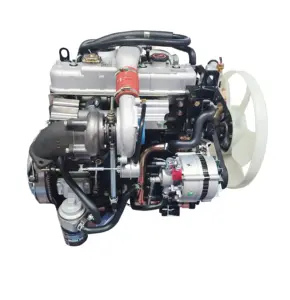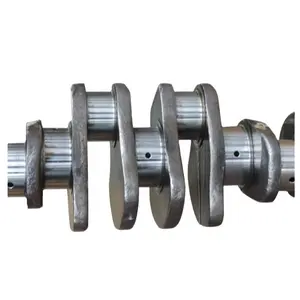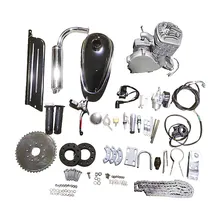Understanding Crankshafts for Gasoline Engines
The crankshaft for gasoline engine is a pivotal component in the realm of internal combustion engines. This integral part is responsible for converting the linear motion of pistons into rotational motion that ultimately powers the vehicle. Crankshafts are engineered to endure the substantial stresses of operation and are central to engine performance and longevity.
Types and Applications
Crankshafts are designed to cater to a variety of gasoline engines, ranging from small engines in motorcycles to powerful units in cars and heavy machinery. The application of a gasoline engine crankshaft extends beyond vehicles to include generators, pumps, and other industrial equipment. Each type is crafted to meet the specific torque and speed requirements of the engine it serves.
Features and Materials
When discussing a gasoline engine crankshaft, the focus is often on the materials and features that contribute to its efficiency and durability. Typically made from forged or cast steel, these crankshafts are designed with precision to ensure balance and strength. Features such as counterweights and journals are integral to the crankshaft's design, aiding in reducing vibration and ensuring smooth operation.
Advantages of a Robust Crankshaft
The advantages of a well-constructed crankshaft in a gasoline engine are manifold. A robust crankshaft ensures optimal conversion of piston movement, leading to better engine performance and fuel efficiency. Moreover, a durable crankshaft contributes to the longevity of the engine by minimizing wear and tear on its components.
Selection Considerations
Selecting the right crankshaft for a gasoline engine involves considering factors such as engine size, the power output required, and the intended use of the engine. It is crucial to choose a crankshaft that matches the engine specifications to ensure compatibility and performance.
Maintenance Insights
Regular maintenance of a gasoline engine's crankshaft is essential for sustained performance. This includes periodic inspection for wear, ensuring proper lubrication, and monitoring for any potential issues. Maintenance ensures the crankshaft operates within its designed parameters, thereby extending the engine's service life.











































 浙公网安备 33010002000092号
浙公网安备 33010002000092号 浙B2-20120091-4
浙B2-20120091-4